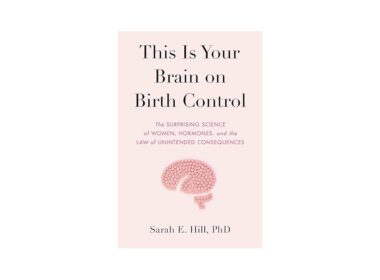Every woman who lives long enough will go through menopause. If you’re reading this, you’ve probably either gone through it yourself or know someone who has. If you’re still in your 20s or 30s, though, you may think you have plenty of time left. Here’s what to know about what causes early or premature menopause, symptoms, treatment, and whether there are benefits to an early end of cycles.
What age is early for menopause symptoms?
The average woman goes through menopause in her early 50s, but some women experience it sooner. Menopause is considered “early” if it occurs in a woman’s early 40s. Menopause is considered “premature” if it occurs before age 40.
Signs of premature or early menopause
By definition, menopause occurs when a woman has not had a period for 12 months. Perimenopause is the time, in months or years, leading up to menopause. Perimenopause is when those famous hot flashes occur, as well as other symptoms including night sweats, irregular cycles, insomnia, decreased libido, vaginal dryness, bladder issues, fatigue, mood swings, insulin resistance, and changes in metabolism. Sounds like fun, right?
As difficult as it can be to go through, perimenopause is a normal biological process. It is the body’s way of transitioning from fertility into menopause. What’s not normal is experiencing these transitional changes before 45. The Cleveland Clinic reports that early menopause occurs in only about 5% of women, and premature menopause occurs in only about 1% of women.
What are the causes?
Sometimes, early and premature menopause happen for no discernable reason. However, certain conditions and medical treatments can cause a woman to stop cycling too soon, and there are also known risk factors.
Hysterectomies and Oophorectomies
A bilateral oophorectomy, or surgical removal of both ovaries, can cause menopause immediately. A hysterectomy (removal of the uterus) without a bilateral oophorectomy does not cause premature or early menopause. So, even without a uterus, so long as you have your ovaries, you should keep cycling. However, a woman who has undergone a hysterectomy may experience natural menopause a year or two sooner than she would have otherwise.
Chemo and radiation
According to the U.S. Office of Women’s Health (OASH), chemotherapy and pelvic radiation treatment can damage a woman’s ovaries, triggering menopause. Fortunately, this is less likely the younger the woman is when she goes through treatment.
(In order to preserve one’s future ability to have biological children in the face of fertility-damaging chemo and radiation treatments, young women are sometimes encouraged to freeze their eggs. However, ovarian tissue freezing may yield better results. More on this innovative option, here.)
Autoimmune diseases
OASH also reports that some health conditions can cause early or premature menopause. While rare, some autoimmune diseases, including thyroid disease, Crohn’s disease, and rheumatoid arthritis, can trigger menopause. They do this by causing the immune system to attack the ovaries and keep them from producing hormones. Enter menopause, stage left.
Other health conditions
According to this review of literature, other health conditions can also cause or are associated with early/premature menopause [1]. These include HIV/AIDS, chromosomal syndromes like Turner’s syndrome and Fragile X syndrome, metabolic disorders such as enzyme deficiencies, infections such as mumps, and chronic illnesses such as chronic fatigue syndrome or epilepsy.
Risk factors
Other risk factors include smoking cigarettes, having a family history of early or premature menopause, and having your first cycle before age 11, according to the Cleveland Clinic.
Can stress cause early or premature menopause?
Experiencing high levels of stress causes cortisol, the stress hormone, to rise. Elevated cortisol levels can then affect reproductive health in many ways. As we’ve reported elsewhere, stress can delay or prevent ovulation, or shorten the luteal phase. Recall that the luteal phase is the phase after ovulation before the next period starts. Delayed ovulation means a late period, and no ovulation means no period.
High cortisol levels can also accelerate the onset of menopause. By how much, though? One study found that self-reported high stress levels can reduce the age of menopause—but only by five months [2]. The Cleveland Clinic reports that stress cannot cause early or premature menopause.
What are the risks of experiencing menopause early?
By definition, menopause at any age causes infertility, which can be distressing to those who wish to have more biological children. Other possible negative effects include an increased risk of osteoporosis, premature death, cardiovascular diseases, and stroke.
Premature menopause is also associated with premature death, cardiovascular disease, and osteoporosis; in addition, it may increase a woman’s risk of neurologic disease, psychosexual dysfunction, and mood disorders.
Are there any benefits of early menopause?
Since there is, as of yet, no way to reverse menopause, it may be helpful to know of its “plus sides” (besides the lack of periods, which women with conditions like endometriosis may find to be a relief).
One benefit of early menopause is that some cancers, like breast cancer, are sensitive to estrogen. In women who experience menopause early, their breast tissue has been exposed to estrogen for less time, which reduces their risk of breast cancer. Of course, if the woman takes hormone replacement therapy (HRT) to make up for her reduced estrogen, this benefit of early menopause is removed.
Postmenopausal women, especially if they are younger, may also have more of what anthropologist Margaret Mead called “postmenopausal zest.” Without the physical and emotional load of periods, PMS, and family planning, many women find renewed energy and excitement for life.
Managing early and premature menopause
Hormonal birth control is often prescribed to manage symptoms of perimenopause. However, as Natural Womanhood contributor Cassondra Moriarty noted last year, hormonal contraception can keep women from identifying their transition to menopause and exacerbate some perimenopause symptoms. She also pointed out that a woman’s postmenopausal health could depend on her hormonal health during perimenopause–in other words, on her hormones staying and cycling at healthy levels. Hormonal birth control alters hormone levels and prevents women from being able to chart their cycles, which keeps them from utilizing valuable information on their hormone health.
Per Healthline, many providers recommend hormone replacement therapy (HRT). Typically they prescribe HRT until the woman reaches normal menopause age. However, it does carry some risks. Healthline notes that HRT can increase your chances of heart disease, stroke, and breast cancer. Lower doses can help mitigate those risks. It’s important to talk to your doctor about both the risks and benefits of HRT.
What should you do if you notice symptoms of early or premature menopause?
If you are under 45 and think you are experiencing perimenopause symptoms, talk to a restorative reproductive health professional you trust. They’ll be able to evaluate your symptoms and hormones and share your treatment and symptom management options. We also recommend continuing to chart your cycle to monitor your hormonal health and help you know when you’re officially in menopause.
References:
[1] Okeke T, Anyaehie U, Ezenyeaku C. Premature menopause. Ann Med Health Sci Res. 2013 Jan;3(1):90-5. doi: 10.4103/2141-9248.109458. PMID: 23634337; PMCID: PMC3634232. [2] Choi BO, Lee YJ, Choi JH, Cho SW, Im HJ, An JE. The Association between Stress Level in Daily Life and Age at Natural Menopause in Korean Women: Outcomes of the Korean National Health and Nutrition Examination Survey in 2010-2012. Korean J Fam Med. 2015 Nov;36(6):305-9. doi: 10.4082/kjfm.2015.36.6.305. Epub 2015 Nov 20. PMID: 26634097; PMCID: PMC4666866Additional Reading:
The top 3 reasons to avoid hormonal contraception during perimenopause
Why have my periods stopped?: Exploring the causes of secondary amenorrhea
Does birth control trick your body into thinking it’s pregnant…or in menopause?
The benefits of charting into Perimenopause
‘Romper’ article recommends birth control through menopause, fails to mention FAM







